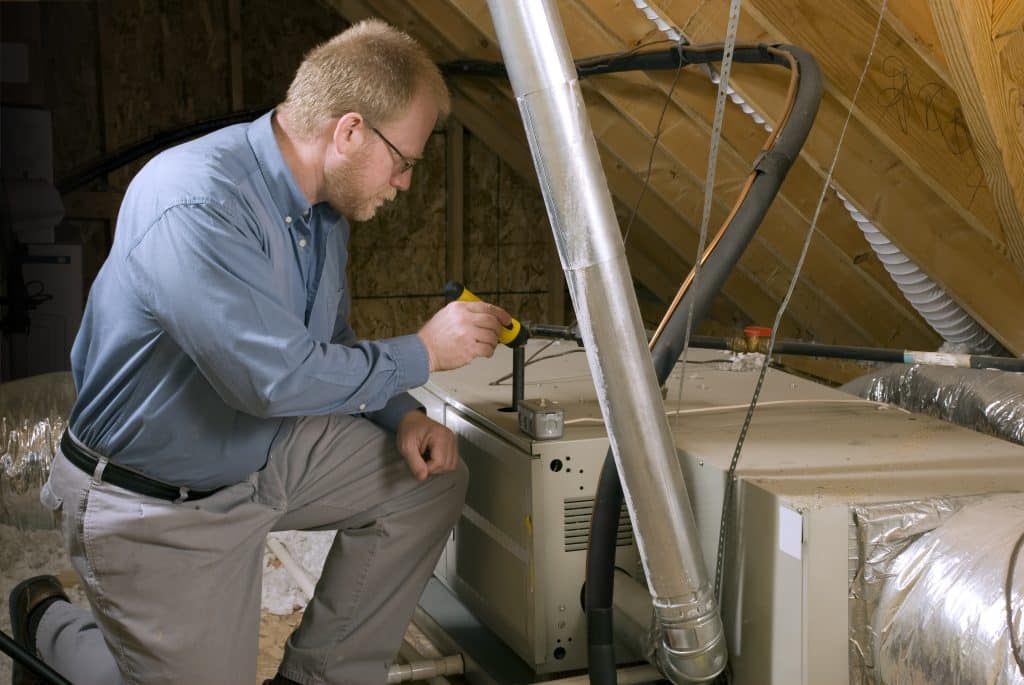Families spend a significant amount time inside their homes, so it is important to ensure it is a safe environment.
Falls
The number one cause of injury in the home is from falling. According to the National Safety Council, nearly one third of all non-fatal injuries in the U.S. occur at home. Most of the time, the injuries from falls are not serious. But a fall for an elderly or disabled person can cause life-changing injuries or even be fatal.
Falls can be caused by several different issues in the home. But if homeowners are aware of these issues, falls can be avoided. Fix uneven stairs and secure loose carpeting. And remove items stored on stairs that can be trip hazards. Be sure handrails are properly installed on all staircases in case someone takes a misstep. Keep wet locations, such as bathrooms and kitchens, clean and dry to avoid slips and falls.
Environment
There are environmental concerns inside the home involving air quality. Outside air often is cleaner than inside. Because most homes are more air-tight than they used to be, there is not as much fresh air inside. Opening a window early in the day or in the evening can help remove stale air. Many cleaning products, air fresheners, laundry additives and dryer sheets contain chemicals that cause reactions in some people, even though they are considered safe to use. It is important to be cautious of introducing too many compounds into the home.
Radon
Every home should be tested for radon. Radon is a naturally occurring gas that may cause lung cancer in elevated concentrations or with long-term exposure. Because it is odorless, homeowners do not know if radon is present unless the home is tested for it. A short-term test can be performed during the homebuying process, which provides a snapshot of the radon level over a two-day period. But because radon fluctuates day-to-day and season-to-season, a long-term test over a period of three months to one year is a good idea, as well. If radon is found, it needs to be professionally mitigated.
Carbon Monoxide
Another odorless gas sometimes found in the home is carbon monoxide (CO). CO is produced from byproducts of combustion, such as natural gas, oil, wood, kerosene, charcoal, tobacco products, internal combustion engines and even our own bodies. CO replaces oxygen in the blood, which can cause headaches, nausea, vomiting, dizziness and fatigue. In high concentrations, it will cause death. Because cars emit extremely high CO, never warm up a car in an attached garage even with the garage overhead door open. In an attached garage, fumes can quickly spread to the house. Every home should have working carbon monoxide detectors on each level or wherever required by local jurisdictions to warn homeowners of CO leaks.
Smoke Alarms
Working smoke alarms are essential in a safe home. The two most common types of smoke alarms are ionization and photo electric. Opinions vary as to which is preferred. Ionization detectors are better for detecting blazing fires. Photo electric detectors are better at detecting smoldering fires, which are probably the more common and deadly type of fire in homes. Batteries should be replaced regularly per manufacturer’s recommendation.
Hazardous Materials
Gasoline, kerosene and oil should never be stored inside the home. All combustible materials, such as paper products, fabrics and chemicals should be kept away from all heat sources, including furnaces, water heaters and space heaters.
Schedule a Home Inspection
Periodic inspection of the entire home is recommended every few years. An ASHI home inspector will talk about many of these potentially unsafe conditions to help homeowners enjoy a safe environment. Find an ASHI home inspector in your area to schedule a home inspection and improve your home maintenance.

Looking for a home inspector to assess your prospective property can be a daunting task. Fortunately, the American Society of Home Inspectors (ASHI) can help simplify the process.


Become a Member
Your success starts here with ASHI. Join the best in the Home Inspection industry – Become an ASHI Member today.